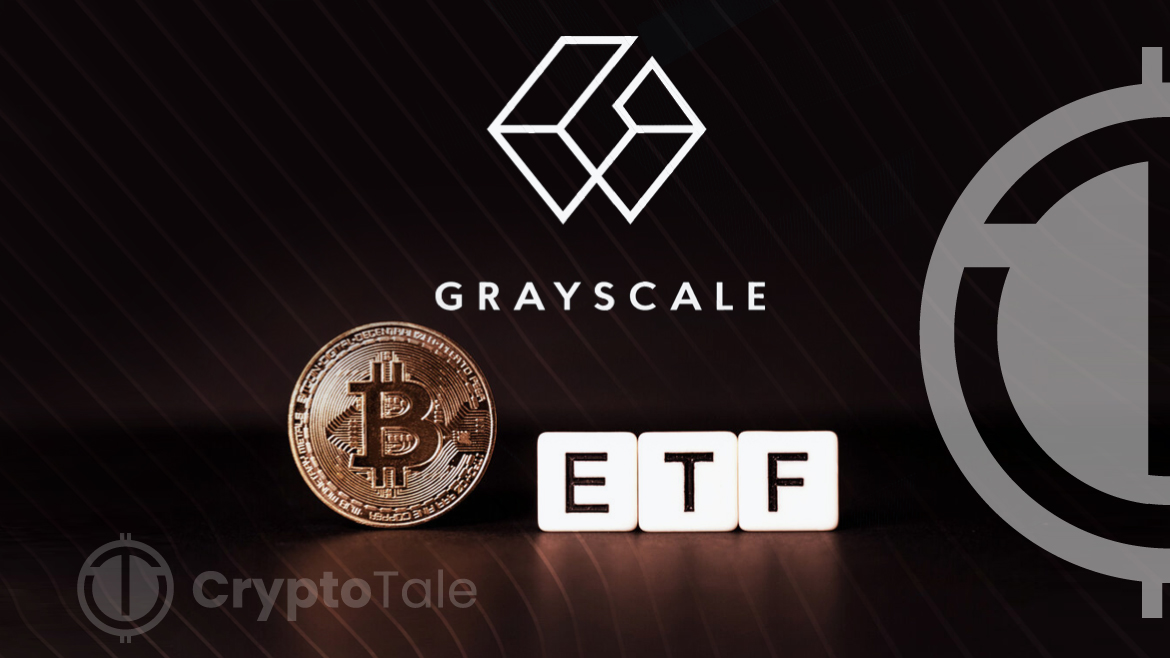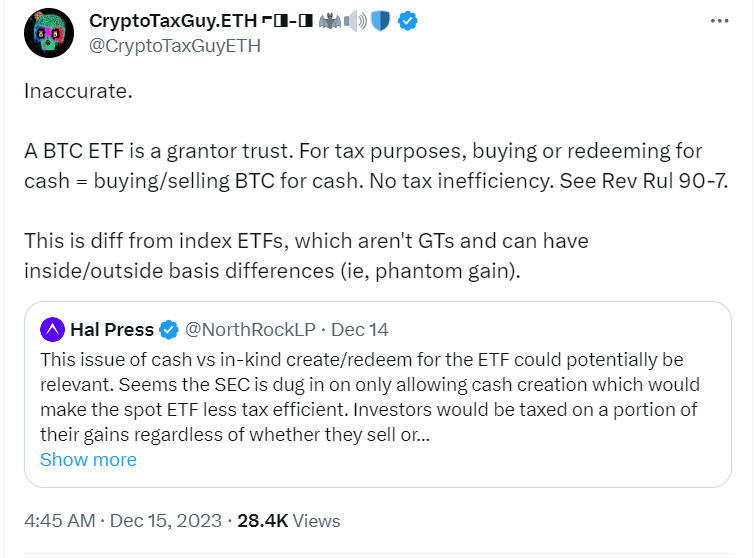
The burgeoning realm of cryptocurrency investments is witnessing a significant development with the ongoing discussions and decisions surrounding Bitcoin ETFs (Exchange-Traded Funds). Central to these debates is the tax efficiency of these ETFs, particularly in comparison to other investment instruments like mutual funds and index ETFs.
As highlighted by CryptoTaxGuy.ETH, a prominent figure in the blockchain sector, recent developments have come into focus. They revealed that a Bitcoin ETF, classified as a grantor trust, may offer unique tax advantages.
This classification implies that transactions involving the buying or redeeming of these ETFs for cash are akin to direct dealings in Bitcoin. This revelation is based on Rev Rul 90-7, a revenue procedure that provides income tax inflation adjustments, or indexing. It suggests that such operations exhibit no tax inefficiency, marking a distinct departure from the tax implications typically associated with mutual funds and index ETFs.

However, the situation becomes complex with the Securities and Exchange Commission’s (SEC) stance on the creation process of these ETFs. The SEC’s preference for cash creation over in-kind creation has stirred concerns.
This approach could potentially lead to tax inefficiencies, where investors might face taxation on a portion of their gains, regardless of whether they choose to sell their holdings or not. Such a scenario differs significantly from the workings of other commodities-based ETFs like GLD, where in-kind creation is permitted.
This issue is particularly pertinent in the context of the Grayscale Bitcoin Trust. As a grantor trust, the structure of the Grayscale Bitcoin Trust stipulates that the establishing entity maintains ownership of the assets. Specifically, in the case of this trust, the asset is Bitcoin, retained for the purposes of income and taxation. This structure ensures that cash redemptions do not trigger taxable events for non-redeeming shareholders, such as retail investors.
Moreover, the SEC’s recent decision to delay the verdict on Grayscale’s spot Ether ETF application until January 24, 2024, adds another layer of complexity to the scenario. This move, coming shortly before a critical meeting between the SEC and Grayscale, underscores the regulatory uncertainties still clouding the cryptocurrency investment landscape.
As Blackrock pushes for in-kind creation of Bitcoin ETFs, the outcome of these regulatory deliberations will be pivotal. It will not only influence the tax efficiency of these investment vehicles but also shape investor perception and the broader adoption of cryptocurrency in traditional investment portfolios.
Consequently, the investment community is keenly observing these developments. They are anticipating how these will redefine the interplay between cryptocurrency investments and tax considerations.














